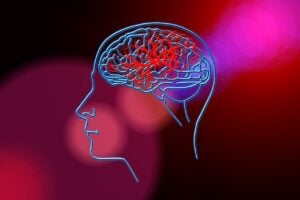On May 11, 2023, the US Food and Drug Administration announced the supplemental approval of Rexulti (brexpiprazole) oral tablets for the treatment of agitation associated with dementia due to Alzheimer’s, the first FDA-approved treatment option for this indication.
“Agitation is one of the most common and challenging aspects of care among patients with dementia due to Alzheimer’s disease. ‘Agitation’ can include symptoms ranging from pacing or restlessness to verbal and physical aggression,” said Tiffany Farchione, M.D., director of the Division of Psychiatry in the FDA’s Center for Drug Evaluation and Research.
“These symptoms are leading causes of assisted living or nursing home placement and have been associated with accelerated disease progression.”
Dementia is a serious and debilitating neurological condition characterized by progressive decline in one or more cognitive domains in the brain. Dementia can seriously impair an individual’s ability to function independently. Many people living with dementia require permanent at-home or residential care. Alzheimer’s disease, the most common cause of dementia, is an irreversible, progressive brain disorder affecting more than 6.5 million Americans.
Patients with dementia often have behavioral and psychological disturbances. Agitation is among the most persistent, complex, stressful, and costly aspects of care among patients with behavioral and psychological symptoms of dementia.
Two studies
The effectiveness of Rexulti for the treatment of agitation associated with dementia due to Alzheimer’s disease was determined through two 12-week, randomized, double-blind, placebo-controlled, fixed-dose studies. In these studies, patients were required to have a probable diagnosis of Alzheimer’s dementia; have a score between 5 to 22 on the Mini-Mental State Examination, a test that detects whether a person is experiencing cognitive impairment; and exhibit the type, frequency, and severity of agitation behaviors that require medication. Trial participants ranged between 51 to 90 years of age.
In the first study patients received 1 or 2 milligrams (mg) of Rexulti; in the second study patients received 2 or 3 mg of Rexulti.
The primary efficacy endpoint in these two studies was the change from baseline in the Cohen-Mansfield Agitation Inventory total (CMAI) score at week 12. CMAI is a survey tool that uses input from caregivers to rate the frequency of certain agitative behaviors in dementia patients on a scale from 1 to 7. In both studies, patients who received 2 mg or 3 mg of Rexulti showed statistically significant and clinically meaningful improvements in total CMAI scores compared to patients in the placebo group at week 12.
Dosing and Side Effects
The recommended starting dosage for the treatment of agitation associated with dementia due to Alzheimer’s disease is 0.5 mg taken once daily on days 1 to 7. Patients should increase the dosage on days 8 through 14 to 1 mg once daily, and on day 15 to 2 mg once daily. The recommended target dose is 2 mg once daily.
The dosage can be increased to the maximum recommended daily dosage of 3 mg once daily after at least 14 days, based on clinical response and tolerability.
The most common side effects among patients with agitation associated with dementia due to Alzheimer’s disease include headache, dizziness, urinary tract infection, nasopharyngitis, and sleep disturbances (both somnolence and insomnia).
Rexulti will retain the Boxed Warning for medications in this class that elderly patients with dementia-related psychosis treated with antipsychotic drugs are at an increased risk of death.
Fast Track Designation
The FDA granted this application Fast Track designation. Fast Track is a process designed to facilitate the development and expedite the review of drugs to treat serious conditions and fill an unmet medical need. The purpose is to get important new drugs to the patient earlier.
The supplemental approval of Rexulti was granted to Otsuka Pharmaceutical Company Ltd., and Lundbeck Inc.
SOURCE:











